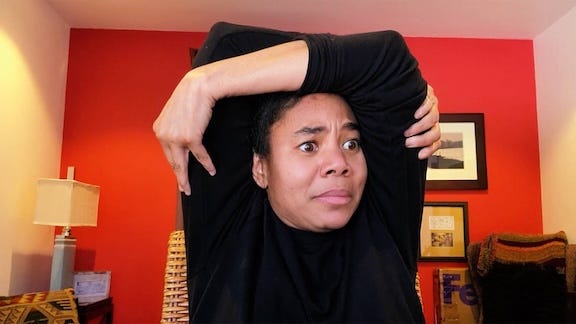Closely reading the lines, liking what I see
On the process of publishing, minding the details + looking for the 'Reading Rainbow'
Friends, the copyedits have arrived! As I mentioned about a month ago, my debut domestic thriller, WOULD I LIE TO YOU?, is officially in production, meaning the technical process of taking my raw manuscript and transforming it into a physical (and digital) book to be released into the world on April 21, 2026. (yaaaay!)
Back at the end of summer, after working diligently, I had completed my revisions on the manuscript, answered all of my editors questions, and the heavy lifting—on the writing side—was done.

This, copyedits, is the fine-tooth-comb stage. It’s drilling down on the details of every sentence—grammar, spelling, parallelisms, fact-checking, consistency, context, formatting. And when I say copyedits are here, it means I was sent the annotated manuscript and style sheet with details like whether the publisher uses the serial comma (yes!) and how foreign language words are handled (standard roman vs. italics), etc. I now need to go in as a second (or tenth?) set of eyes to do a super-close read of every line, make sure nothing was missed as well as address any fact-checking notes, questions and suggested changes from the copyeditor.
Now that I’ve started closely re-reading this book, I have to say, I’m so very proud of it! Yes, I’ve said this more than a few times, but it’s the truth: I cannot wait to share this novel with you.
While the close-read of WILTY is happening, I’m also working on the next book. And that, book two in the proposed series, is finally feeling like it’s gelling. Which, honestly, took a minute. Although I was making solid progress on the outline, trying to piece my ideas together for the detailed synopsis, figuring out how to land the plane—give this portion of the story a satisfying ending—felt out of reach. It was kinda messing with my sleep. No joke. I would wake up in the middle of the night like:
My brain would not settle down and let the ideas come naturally. Making matters worse, that little voice—the one that waits for you in the dark corners of your mind—jumped out like a tiny monster with a hot pot of doubt in hand. Thankfully, I have a circle of support that will always talk be down and remind me that I’ve got this and I can tell that little voice, “Yo, get outta here, ya menace. Kick rocks, witchoraggedyass!”
This week ran away so fast, and my head was down, focused on the work, but I still managed to grab a few bits and pieces to share with you. Here’s what I Read, Watched + Heard this last week.
READ:
Lately, the more I’ve been leaning away (recoiling, actually) from social media and all its gross, warped behavior, the more I’ve been leaning into Substack. So much good stuff! Doomscrolling where? Brain rot who? I’m regularly getting fed on this platform. And, like with this mindbox piece, “why we get in our own way (the neuroscience of self-sabotage),” from back in May, I’m often finding the very thing I need to read right now.
“At the core, it’s the same shape - a split between what we want and what we actually allow ourselves to move toward. And it stings, because often the desire is genuine. We do want the job, the connection, the peace. But something in us simply won’t allow it?”
“… Understanding those mechanisms (how fear, habit, and emotional memory get wired into our decision-making) has helped me make sense of why I sometimes act against my own interests. It doesn’t make it less frustrating, but it does make it easier to meet myself with compassion.” —Yana Yuhai, mindbox
I follow novelist Andrea Bartz’s Get It Write Substack, and it was a smart move on my part. Bartz always has something insightful, informative or plain ol’ clever to say about writing, publishing and the business of being an author. So, it was great to see her essay in The Times, “I Sued Anthropic, and the Unthinkable Happened” [gift link], about her necessary fight against AI.
“The fight felt daunting, almost preposterous: me — a queer, female thriller writer — versus a company now worth $183 billion? Thanks to the relentless work of everyone on my legal team, the unthinkable happened: Anthropic agreed to pay authors and publishers $1.5 billion in the largest copyright settlement in history. A federal judge preliminarily approved the agreement last week.”
On the topic of the publishing industry, I dived right into this long but important piece from The Walrus, “The Publishing Industry Has a Gambling Problem.”
“Publishing’s habit of jumping on a trend, especially if that trend is identity based, can come down hard on writers who have been underrepresented in mainstream culture. It can even set them up for failure down the line. Habib cites the moment in 2020 when presses eagerly began acquiring books by Black authors. Many of those presses had never published Black authors in a meaningful way and lacked the infrastructure to properly support those books or help them find readers. ‘It becomes very easy for a publisher to say now, five years later, ‘Oh, we tried that, and it didn’t work,’ simply because their particular iteration of it didn’t, she says.’” —Tajja Isen, The Walrus
In a welcome case of bright news right when we need it: Solange Knowles uses her multidisciplinary institution, Saint Heron, to launch a “Digital Library To Amplify Black And Brown Authors, Poets, And Artists.”
“The Saint Heron Library is home to our archival collection of primarily rare, out of print, and 1st edition titles by Black & brown authors, poets, & artists,” Knowles said in an Instagram caption sharing the good news.
Speaking of libraries (and more bright news), one of our collective internet faves, Bay Area librarian Mychal Threets (widely known on social as Mychal the Librarian), has been named the new host of PBS’ beloved children’s program Reading Rainbow, which is getting a reboot after nearly 20 years.
Sad to learn of Assata Shakur’s passing last week, but reading the many stories honoring her, like this Essence piece, “How Assata Shakur Reminded Us Of The Beauty And Power In Preservation,” was quite beautiful.
I wholeheartedly believe that beauty, love, is in the details. I was happy to stumble on this piece, again on Substack, “The Beauty in Detail,” with gorgeous photographic examples of how, “the difference between good and great has always lived in the details.”
“Details matter. They matter because they show us that human effort can rise above mere utility. They matter because they carry memory, care, and sacrifice. Without them, our existence risks becoming flat, mechanical, and devoid of depth.” —James Lucas, Beauty Is Truth
WATCHED & HEARD:
Although I try not to use this newsletter to get too deep into the hell and horror this country’s current administration is actively dragging us through, I do want to share this commentary from one of the more gifted, erudite minds we’re fortunate to have speaking up and out: award-winning writer Ta-Nehisi Coates.
Coates wrote this sharp piece, “Charlie Kirk, Redeemed: A Political Class Finds Its Lost Cause,” for Vanity Fair two weeks ago. I had planned to share it back then, but honestly, my anger was too raw at that point, watching the warped, absurd way things were playing out after Kirk’s killing. If you haven’t yet read the piece, please do. In the VF story, Coates had things to say about political commentator and journalist Ezra Klein’s response to Kirk’s assassination. And so, this week, Klein invited Coates on his NYTimes podcast “to discuss how the left should think about the work of politics and persuasion in this moment,” but also to talk about Coates’ disagreement with Klein’s memorialization of Kirk post-assassination.
Here’s the gift link to the Times’ full article, but I urge you to listen or watch the episode too. It’s long, a little over an hour, but very good.
“[I] don’t take any joy in saying this, but we sometimes soothe ourselves by pointing out that love, acceptance and warmth are powerful forces. I believe they are. I also believe hate is a powerful force. I believe it’s a powerful, unifying force. And I think Charlie Kirk was a hatemonger.
“I really need to say this over and over again. I have a politic that rejects violence, that rejects political violence. I take no joy in the killing of anyone, no matter what they said.
“But if you ask me what the truth of his life was — and the truth of his public life — I would have to tell you it’s hate. I’d have to tell you it is the usage of hate and the harnessing of hate toward political ends.”



